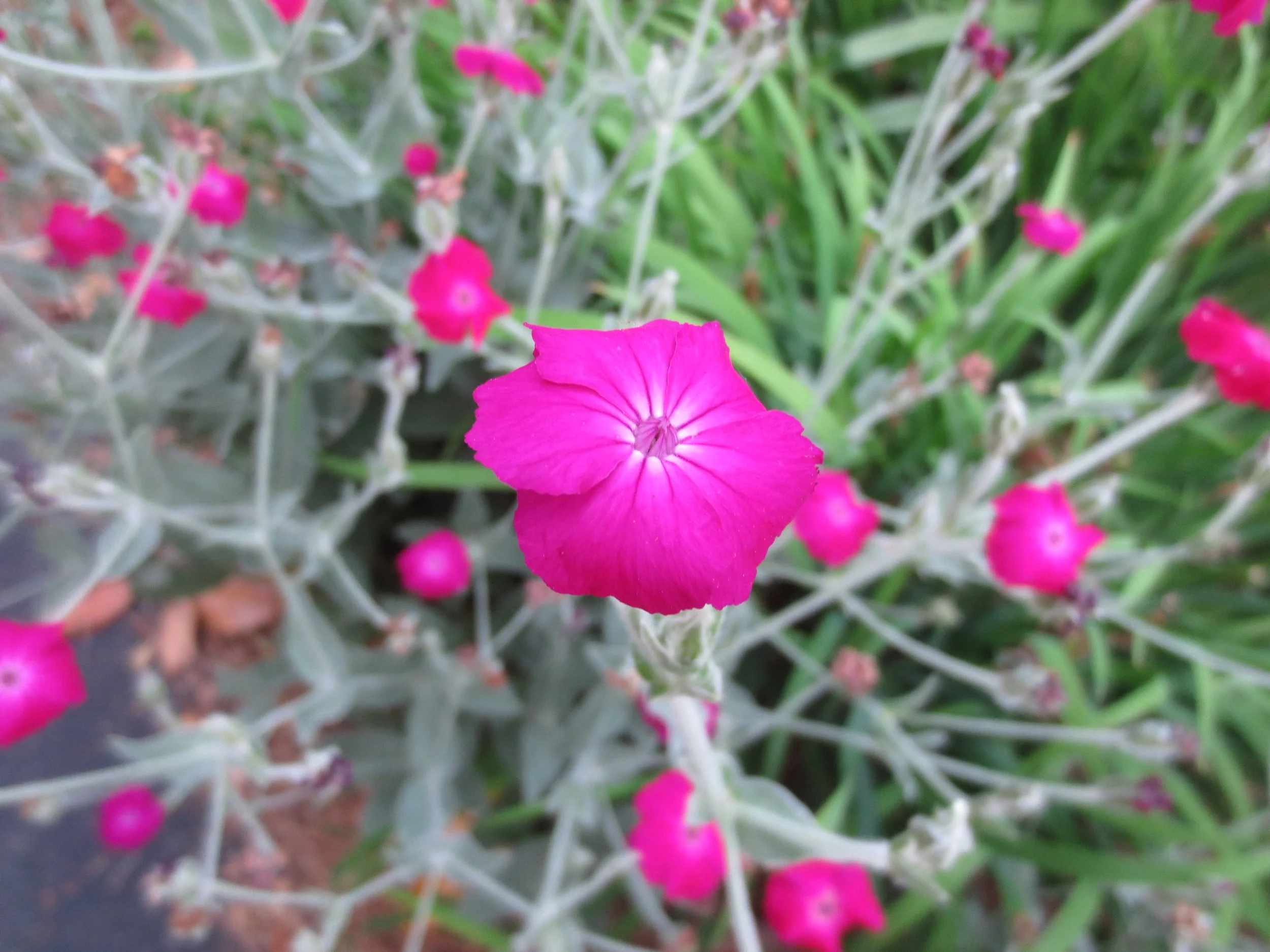Regular readers may notice a clear color preference. I admit it — I love blue flowers, including those that might be considered weedy. As a child, my favorite color in the box of Crayola 64 (the beginning of each school year started with a fresh box “with a built-in sharpener!”) was definitely Cornflower Blue. I learned to love Cornflowers from an early age. Wild Cornflowers edged the fields of my grandparents’ farm. My mother identified them as Ragged Robins. She also told me that ALL snakes were deadly and I might keel over if I even looked at one too long. She was well-meaning, but wrong on both counts.
Ragged Robin is the common name for another flower with similar petals. The blue blooms in these photos are Centaurea cyanus (pronounced Cen-TUR-e-a sigh-AN-us), commonly known as Cornflowers or Bachelor's Buttons. They earned the Cornflower moniker because they bloom in corn fields throughout the US and UK, in all zones. How’s that for accommodating?
As a result of social distancing, I am suffering a case of cabin fever. My husband took me for a country drive, and obediently braked and reversed when I screamed, “Stop - I need a photo!” I don’t know whose pasture I invaded, but I hope they enjoy the blue haze as much as I did.
Seeds are available for this drought-tolerant plant that is native to Europe but has naturalized across our country. The seeds sprout easily and the plants grow rapidly up to 30 inches. Named cultivars may be shorter. They bloom like mad during the spring, then fade into obscurity. If you resist the urge to deadhead spent blooms, they will reseed and naturalize. They look outstanding when seen with a yellow weed that blooms about the same time in our Zone 7b. (Sorry, I don’t know the name of the yellow weed.) Grow them in full sun. Shade produces a weak, floppy stem.
The typical color is Cornflower blue but a pink, white or burgundy bloom may pop up occasionally. Cornflowers attract bees and butterflies, and are a wonderful addition to your wildflower garden or meadow. Makes a good cut flower, too.
A closer look
A sea of blue in a country field. The reddish color in the distance is wild sorrel, also in bloom right now.


